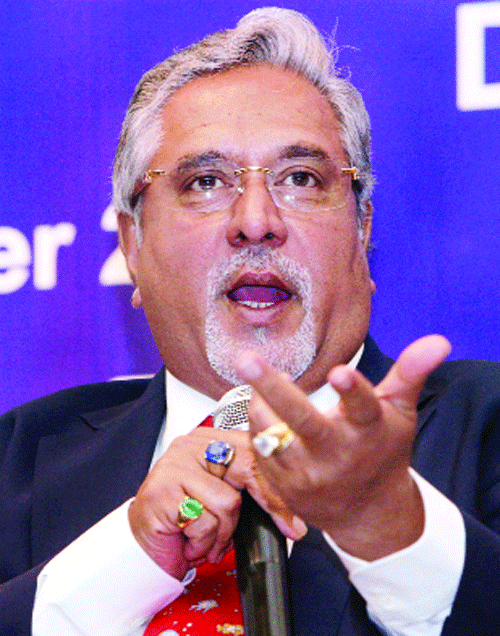He must return to India and settle his dues
The bank consortium's decision to reject industrialist Vijay Mallya's offer to partially repay his debt is possibly driven by two factors: First, the banks decided that the money was too little and the offer made too late in the day. Second, the banks did a preliminary assessment of his known assets and investments and decided that he had the wherewithal to pay more, if not the entire amount. There isn't enough data in the public domain to ascertain Mallya's personal worth (which is separate from the value of his companies and investments), but up until 2012, he was in the billionaire's club, according to listings by Forbes. After that, his personal wealth fell below the one billion-dollar mark, and Mallya was dropped off the list of the world's richest people. But it is safe to assume that he is no pauper. For example, Mallya reportedly has vast real estate investments; at least 26 properties, located all over the world, including in Scotland, Monaco, New York, Napa Valley, South Africa, Goa, Mumbai, Bangalore, and New Delhi. Additionally, he also owns the Kunigal Stud Farm in Tumkur, Karnataka. More than 200 years old, this stud farm is said to have been used by Tipu Sultan for his cavalry. In fact, at the peak of his career, Mallya bought Tipu Sultan's sword as well as Mahatma Gandhi's glasses for £175,000 in 2004 and $1.8 million in 2009 respectively. These are just some of his assets reported in the media and, therefore, they are presumably the tip of the iceberg.
Mallya owes the banks Rs9,000 crore and had, earlier in the week, offered to pay up Rs4,000 crore in two equal instalments the first one right away and the second by September. However, after the banks rejected this offer, it was followed by a counter-offer on Wednesday evening. This offer is reportedly still under consideration; in the meantime, the Supreme Court has stepped in and ruled in favour of the banks. It has ordered Mallya, who is currently in london, to return to the country so that a loan repayment schedule can be worked out. He has also been told to disclose all his assets and investments as well as those of his wife and children, prior to the negotiations. In response to Mallya's lawyers' arguments that these negotiations could be carried out through his representatives, the apex court has made it amply clear that Mallya has to return to India to personally participate in the negotiations and offer proof of his intent.
The ball is now in the high-profile, swashbuckling industrialist’s court. It is possible that he and his team may come up with another tactic or excuse so that he does not have to return to the country and face the system here. On the other hand, they can see this as an opportunity to resolve matters and avoid jail-time. If he calculates that he can manipulate loopholes in the law, use his influence (though the Modi Government has clearly indicated that it wants him to pay up, period) and eventually wriggle his way out of the system, he will continue to play hardball. However, if he is given to believe that the long arm of the law will ultimately catch up with him and he will then have to pay an even heavier price, he will fall in line. In this context, the banks were right in refusing his first offer. They needed to show that they too can drive a hard bargain.


























